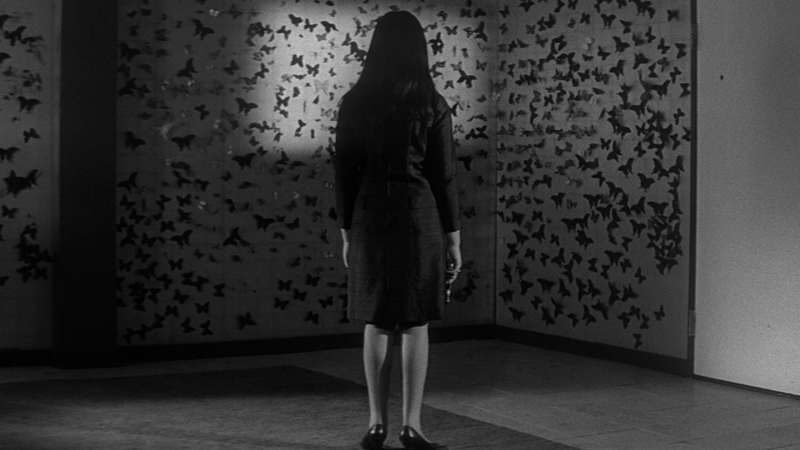Several famous films that we know of today did not always perform as well at the box office. Whether they were ahead of their time or plagued by a content matter that underwent heavy censorship, Time has turned many box office bombs into cult classics. Starting from Hong Sang-soo's directorial debut to works by Akira Kurosawa, several big names that we know of today are a part of this list. Read below to find cult classics that were not popular with the audience on the time.
Rashomon
Rashomon is perhaps Akira Kurosawa's most famous work. It deals with a single tale told from 4 different perspectives with each tale adding a new layer to a single event. The film went on to inspire several other works that inspired the same effect. Kurosawa's movie was instrumental in bringing about new technical ways of lighting up a scene and introduced the idea of using different lights to mark good or bad decisions. However, Rashomon was hardly a critic favourite when it first came out on the screen.
It performed well enough in the West, but critics in Japan were hardly pleased. They believed the success of the movie overseas lay in Japan's exotic appeal and the director himself deserved little credit. When the time came to submit a film at the Venice Film Festival, the Japanese government chose to pass over Kurosawa's work in favour of others. Despite this, after the convictions of an Italian Film Agency, Rashomon was submitted and went on to win several awards.
Fighting Elegy
Directed by Seijun Suzuki, this movie is based on a novel by Takashi Suzuki and deals with the story of a boy Kiroku who attends a military Catholic school. Trained in fighting techniques, Kiroku goes on to become a youth leader and channel all this frustration into one outlet - violence and destruction. The director took several liberties with the plot of the novel, and the final film was a satirical approach to the institutes that encourages fascism.
Perhaps the subject matter, or perhaps the way in which the matter was health with led to a large segment of the audience not connecting with it. Fighting Elegy, as a result, became a footnote in 1960s cinema until it was screened at various film festivals and retrospective clubs where it gained popularity again. The director planned on making a sequel to the movie but was fired soon after and thus the project never made it on screen. He did, however, work on other films with some members of the cast like Hideki Takahashi who went on to become a television star.
Branded to Kill
After Fighting Elegy, Seijun Suzuki released Branded to Kill which faced a similar fate. Perhaps Seijun Suzuki's works were too ahead of his time? Despite coming up with several scripts, the production company Suzuki worked at kept rejecting his ideas. At the last minute, he offered an absurdist masterpiece which failed on a large scale. Suzuki was fired (and thus we never got the second half of Fighting Elegy). However, Suzuki tried to due to the company and was supported by several like-minded filmmakers and independent artists in this venture. Unfortunately, this simply resulted in him being blacklisted from the film industry and the next film he was able to make was almost a decade later.
Branded to Kill is a yakuza story that was filmed on a very low budget. Thus prompted Suzuki to come with several innovative methods of lighting. His temperament resulted in him changing scripts very often with the actors being sometimes handed all-new lines at the last moment. Almost 15 years after its release, Branded to Kill received an almost cult-following overseas. Filmmaker Quentin Tarantino and Chan-wook Park have stated Suzuki's works as influences in their own art. Suzuki was often criticised for creating a genre that inspired the youth to be rebellious and violent. Thirty-four years later, Suzuki directed Pistol Opera, which was a loose sequel of Branded to Kill. Surprisingly, the film was well-received and marked Suzuki's acceptance by the public.
In the Realm of the Senses
In the Realm of the Senses is an independent Japanese art film based on the unconventional lives of a man and a hotel maid he is attracted to. The subject matter is explicit with several graphic scenes. The controversial subject matter of the movie led to it receiving huge cuts and the screening in Japan having huge chunks cut out or blurred. Not surprisingly, released at a time when society was deeply conservative, the movie was shunned and received very few screenings.
However, the movie was screened at the New York Film Festival and at the London Film Festival and received generally positive reviews. The movie faced issues with screening in several other countries as well like Portugal and Belgium. Overall, until 1994 there was hardly any place that allowed the entire footage to be screened (London allowed screening in private clubs) and the negative views of the subject matter widely impacted the reach it could have had. Surprisingly, a huge portion of the initial revenue that the film earned came from France. The movie never made it on to the list of commercial successes, but it did become a cult classic due to its backtrack. The main song was recorded by musician Chaz Jankel from the UK and spent some time on the Top 20 hits. Tatsuya Fuji who starred in the film went on to be a successful actor with two films screened at Cannes, and also received several national and international awards for Best Actor.
The Day a Pig Fell Into the Well
This movie was Director Hong Sang-soo's debut and was largely glossed over by the Korean audience. Dealing with the lives of four characters, and is now widely believed to be his best works. Subsequent films have turned Director Hong Sang-soo into a household name, but it took time until people rediscovered The Day a Pig Fell Into the Well. The cast also stars Song Kang-ho of Parasite fame. Critics have mentioned how Hong Sang-soo tends to repeat the same elements in many of his films, but his subsequent films have proved that he can mesh the existing formula into any genre he wants. Hong's movies feature domestic realism, contain self-improvised scripts and feature a strong cast of actors. It is no wonder that his earlier films are receiving exposure now with his recent success of The Woman Who Ran.
Know more such movies? Let us know in the comments.




